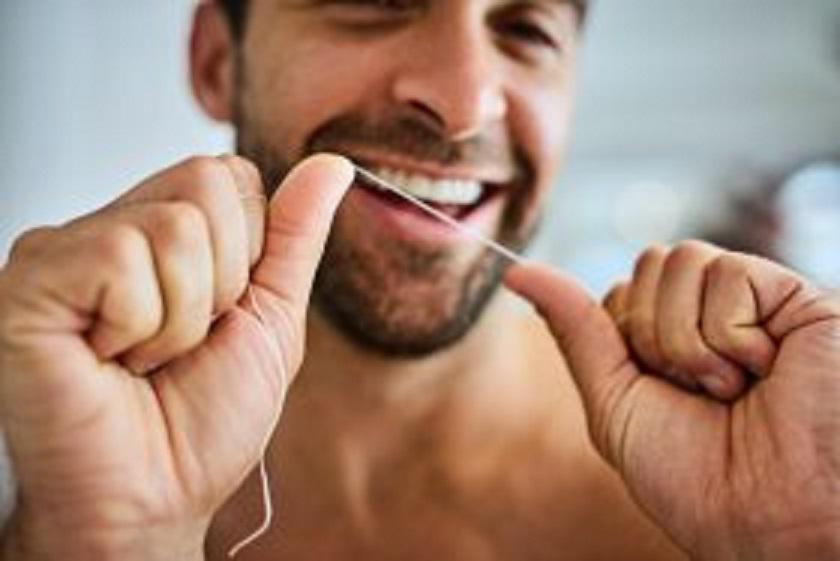
Flossing is one of the best things you can do for your oral health and is more important than brushing in terms of preventing periodontal disease. Unfortunately, even though this is one of the best tools we have to keep our teeth and gums health, only 2-5% of people floss regularly. In order to promote flossing we wanted to combat some popular flossing myths and excuses that may keep people from starting to floss regularly.
Flossing Is Only For When Food Is Stuck Between My Teeth:
Flossing is a great way to remove food debris that are stuck between teeth; however, that’s only one of the things flossing does. Flossing also removes dental plaque that accumulates between the teeth and under the gum line. These are areas that you typically cannot reach while brushing. If the plaque is allowed to build up over time it can lead to inflammation, gum disease, and tooth decay.
I Can’t Floss Because I Have Braces:
Braces can make flossing challenging, but you should absolutely still take the time to floss. If you don’t floss while you have braces, you’ll have months to years of plaque built up between your teeth and under your gum line that could harm your newly straightened teeth. Your orthodontist will be able to teach you how to floss with your braces and let you know if you need any extra tools to make flossing with braces easier.
Flossing Hurts & Makes My Gums Bleed:
The only reason your gums hurt and bleed while flossing is because you’ve neglected them. People with healthy gums typically don’t experience pain or bleeding while flossing. If you are experiencing these issues, then you most likely have gingivitis, an early stage of gum disease (periodontal disease). For people with gingivitis flossing is one of the best ways to fight the disease and reverse the symptoms. Although, it may be uncomfortable at first if you continue to floss daily within a week or two the pain and bleeding you experience during flossing should slowly go away.
My Teeth Are Too Close Together To Floss:
Having teeth that are very close together can make it difficult to floss but that doesn’t mean you don’t need to. By changing up what type of floss you use and using specific flossing techniques you can learn how to floss your close together teeth. First, ask your dentist for a recommendation for floss that is thin and will easily glide in between your close-set teeth. Typically, waxed floss or floss made of slippery polytetrafluorethylene will be easier to floss with if your teeth are close together. Secondly, instead of using brute force to wedge the floss in between your teeth gently ease the floss in by wiggling it back and forth.
I’m Bad At Flossing:
Floss Pick
Using typical floss can be difficult for some but don’t let that stop you from flossing. Now days you have multiple flossing options, you can use traditional floss, soft picks, water flosser, floss picks, etc. A lot of these option even allow you to floss using only one hand.
Flossing Has Been Debunked:
Back in 2016 a story came out stating that flossing was found to not be effective. This story was picked up and sensationalized with click-bait headlines. The truth is that this review was misleading. Dentists point to the fact that long-term, large-scale, controlled studies of flossing are limited and typically rely on self-reporting, which can be incorrect. They also point to small clinical studies that have found flossing in addition to brushing reduced gingivitis (mild gum disease) significantly better than toothbrushing alone.
The American Dental Association and Dentists still recommend you floss daily to clean between teeth and remove plaque that can lead to cavities or gum disease.
